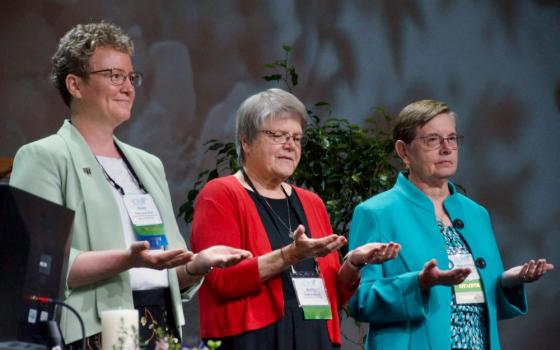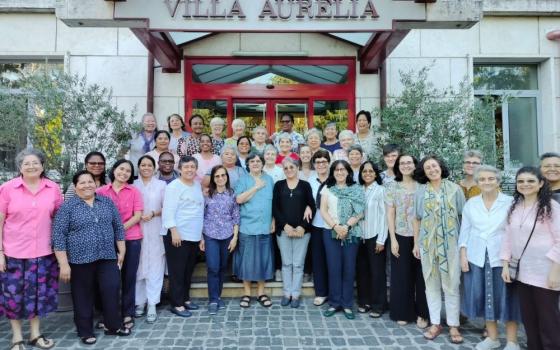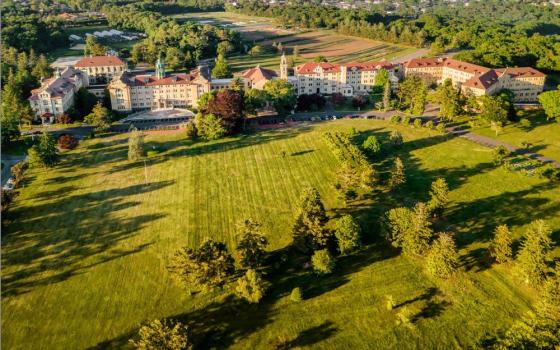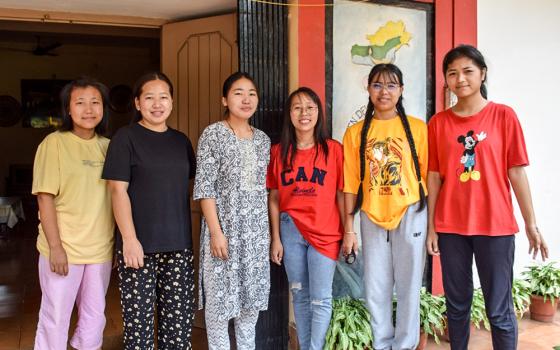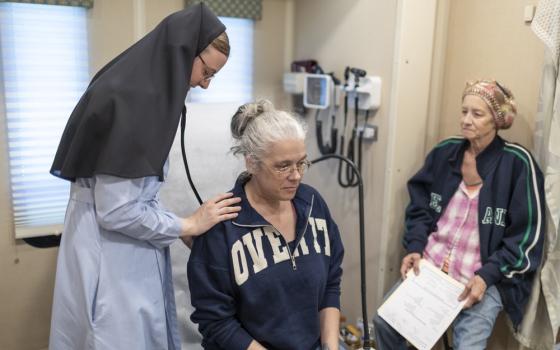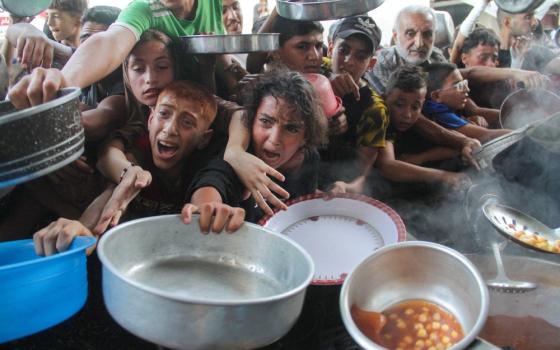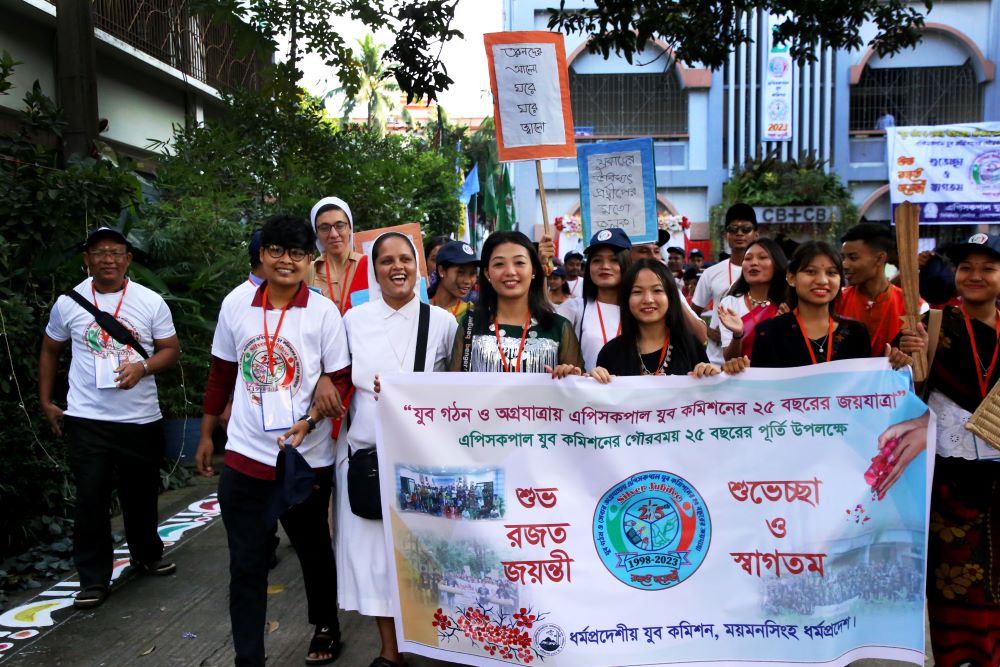
Our Lady of Sorrows Sr. Champa Adline Rozario joins young people in a peace rally. She said that "to work with youth, you have to think like them and understand them. Accept their weaknesses and strengths and work with them." (GSR photo/Stephan Uttom Rozario)
Our Lady of Sorrows Sr. Champa Adline Rozario recently attended World Youth Day in Lisbon, Portugal, as the office secretary of the youth commission of the Catholic Bishops' Conference of Bangladesh. Studying at St. Mary's Girls School and College from an early age, Rozario dreamed of becoming a missionary sister. After completing her secondary school certificate, she met with Sr. Lipy Gloria Rozario, a member of Our Lady of Sorrows, and learned about the congregation's work with people in the slums, especially children.
In 2005, Rozario entered the congregation, and in 2014, she made her first vows. In 2019, she made her final vows as a missionary nun. She obtained a master's degree in development study from Independent University of Bangladesh. She later completed her master of education from Archbishop T.A. Ganguly Teachers' Training College in Dhaka, Bangladesh.
In her religious life, she has spent time with children and young people from the Pontifical Missionary Childhood, Young Christian Students and the Bangladesh Catholic Students' Movement. She also taught for more than 10 years.
Rozario joined about 354,000 pilgrims from more than 200 countries in Lisbon for World Youth Day events Aug 1-6. She talked to Global Sisters Report about her experiences with Bangladeshi youth.
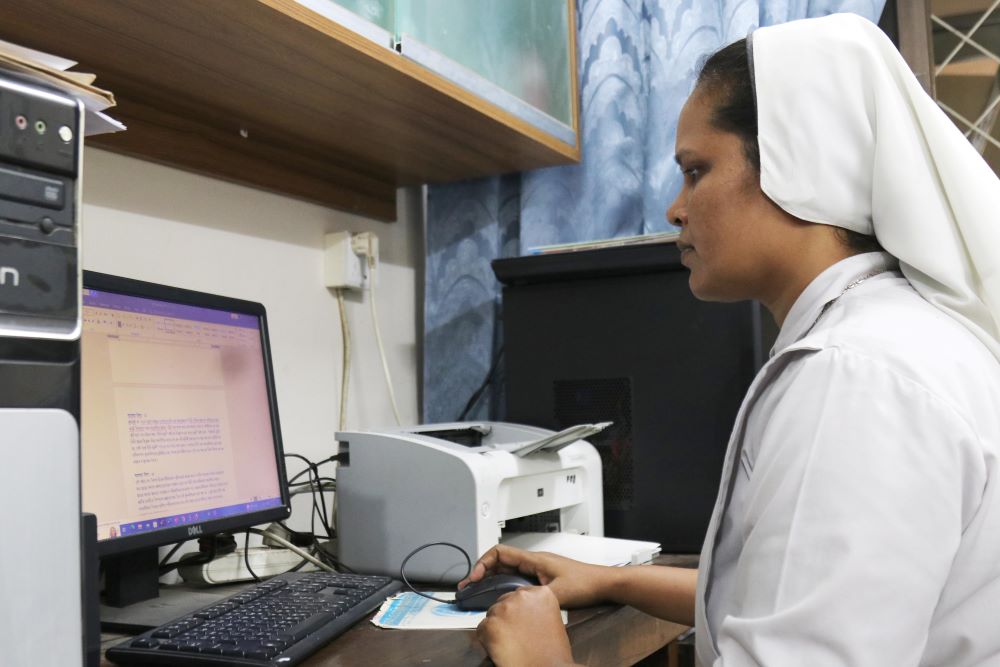
Sr. Champa Adline Rozario works in her youth commission office in the Catholic Bishops' Conference Center in Dhaka, Bangladesh. (GSR photo/Stephan Uttom Rozario)
GSR: Why did you become a nun, and how did you achieve that desire?
Rozario: I saw the work of the sisters when I was a child and the impact that work has had on society, especially among young people. After that, I thought I would also work with young people, not only in my village but in the whole country.
When I joined in 2005, our community in Bangladesh worked with the poor, and after school, I worked with slum children. In the beginning, there was a problem because these children lacked cleanliness and used to wear the same clothes for two or three days.
What happened next?
I taught them to take care of themselves and gave them clothes. Seeing this change made me love that it was my job to make these children well. Ninety percent of the children are Muslim, and it was more difficult to work with them because the parents of Muslim children do not want to give them to us as we are Christians. We had to convince their parents, which was a bit difficult. It works when I can preach the message of Christ through acts.
Daily prayer, reading the Bible and meditation gave me more mental strength to work with people. God's calling has been fulfilled in my life. God has called me and will guide me. Whatever I have done so far, I think God has fulfilled me.
How did you get involved with the youth commission?
Since childhood, I had a desire to work with boys and girls. Last year, I participated in National Youth Day. Earlier, I had done various work for the youth commission. We had to inform our superiors from the youth commission about our work, and I received an official letter from the bishop to join.
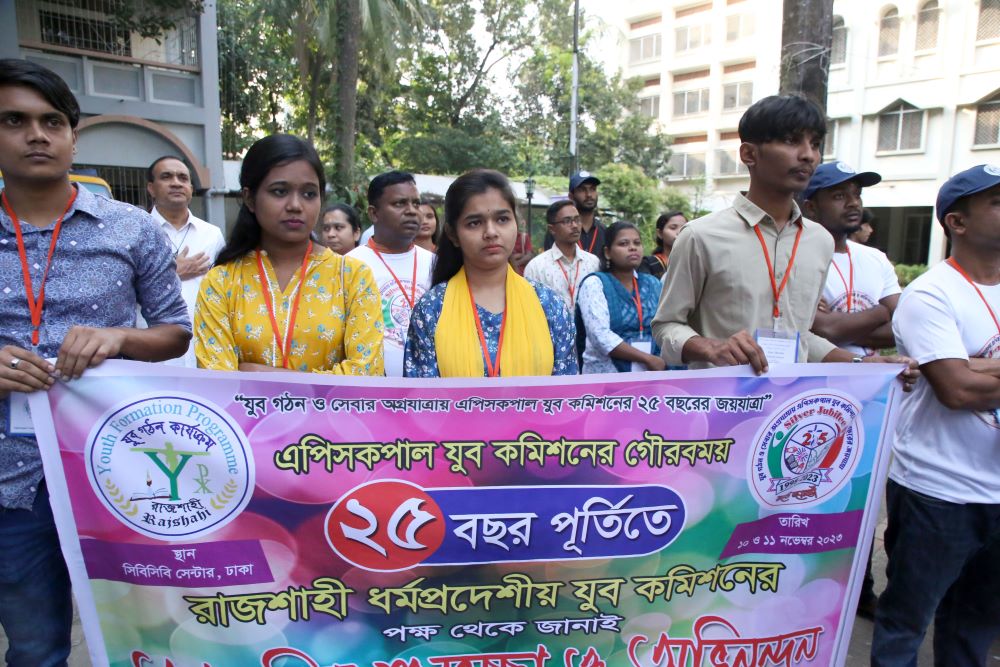
Youth gathered from the Rajshahi Diocese, about 350 kilometers from Bangladesh's capital, Dhaka, joined the silver jubilee of the youth commission. (GSR photo/Stephan Uttom Rozario)
What did you and your team get from World Youth Day?
It was a new experience for me and our youth. We did a lot of preparation with them before we left, including retreats and various workshops. We tried to prepare them spiritually, mentally and physically. Our young people were active in the whole program.
This year, we hoisted our Bangladeshi flag. We tried to stay in the front to hear the pope's speech. We were in the sun, but no one seemed to [mind]. When the pope said, "God sees you, and God knows everything," everyone fell silent. The pope's words were of great interest among our youth. They understood what the pope said.
We participated in the Way of the Cross and shared different experiences, and many of them wept. It was an achievement for them. On the last day, we walked for about three hours. I saw our boys and girls walking a lot, taking little rest and helping each other with their belongings. It fostered a supportive attitude. They took pictures with the youth of other countries sharing in this hardship. I think that's real life. This fellowship is a great lesson about life.
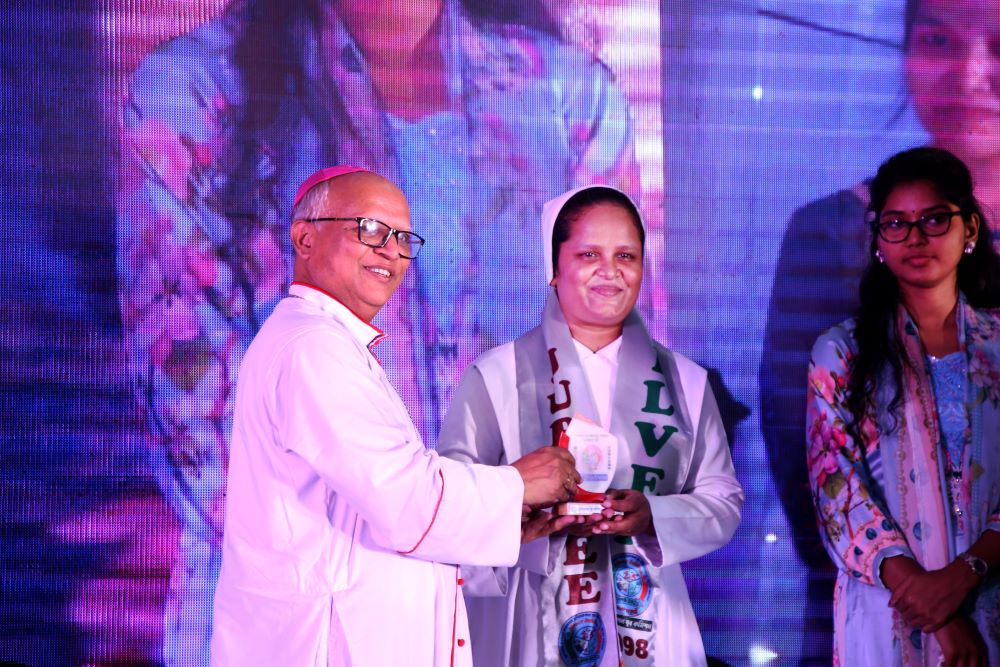
Sr. Champa Adline Rozario was honored by the youth commission of the Catholic Bishops' Conference of Bangladesh on the silver jubilee of the commission. (GSR photo/Stephan Uttom Rozario)
What changes did you see in the youth when they came back?
Before World Youth Day, they were not as compassionate towards each other. A bond developed between them, and they became more interested in the youth commission and more active. They are now working in different dioceses.
What will be the progress of the youth commission with these young people in the future?
We will conduct workshops with them on National Youth Day, where they will share their experiences and bring out their practical experience. By doing this, at least 500 young people in Bangladesh will know what happened without going to World Youth Day. Some dioceses have already started. They are writing about the experience in various magazines, which are read by schools and colleges.
What are the next steps for the youth commission to develop young people in Bangladesh?
If the family does not practice spirituality, how will the children be interested in the church? Although many young people are interested in the church, most are not. Most are not interested because they don't receive this education from childhood. Again, we religious are also responsible for this.
Advertisement
What challenges do you face working with young people?
Many of us who work with them want to impose our thoughts on them, but to work with youth, you have to think like them and understand them. Accept their weaknesses and strengths and work with them.
With social media and entertainment at their fingertips, it's difficult to keep them on track. Since the family is the main place of formation, we can't provide the best education to a family that doesn’t pray, observe religious rituals or adhere to values.
The biggest challenge is not getting a proper education in the family.
How are you dealing with this problem or challenge?
We need healthy families, mentally, spiritually and physically. If we can take care of a child in these three aspects, the problem will be solved. We have to give importance to family.
What are your plans for the youth in Bangladesh?
I desire that they become Christian leaders and follow the values of Christ. It is my wish that we should accompany them. We should build a loving society and are working towards that goal. People of other communities should understand we are Christians through our acts without having to say it.

